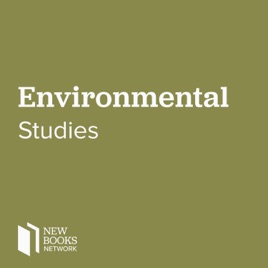
Advertise on podcast: New Books in Environmental Studies
Rating
4.4 from
Country
This podcast has
856 episodes
Language
Publisher
Explicit
No
Date created
2011/03/09
Average duration
54 min.
Release period
3 days
Description
Interviews with Environmental Scientists about their New Books Support our show by becoming a premium member! https://newbooksnetwork.supportingcast.fm/environmental-studies
Podcast episodes
Check latest episodes from New Books in Environmental Studies podcast
James S. Damico and Mark C. Baildon, "How to Confront Climate Denial: Literacy, Social Studies, and Climate Change" (Teachers College Press, 2022)
2024/02/13
Climate change and climate denial have remained largely off the radar in literacy and social studies education in the United States. How to Confront Climate Denial: Literacy, Social Studies, and Climate Change (Teachers College Press, 2022) addresses that gap with the design of the Climate Denial Inquiry Model (CDIM) and clear examples of how educators and students can confront two forms of climate denial: science denial and action denial. The CDIM highlights how critical literacies specifically designed for climate denial texts can be used alongside eco-civic practices of deliberation, reflexivity, and counter-narration to help students discern corporate, financial, and politically motivated roots of climate denial and to better understand efforts to misinform the American public, sow doubt and distrust of basic scientific knowledge, and erode support for evidence-based policymaking and collective civic action. With an emphasis on inquiry-based teaching and learning, the book also charts a path from destructive stories-we-live-by that are steeped in climate denial (humans are separate from nature, the primary goal of society is economic growth without limits, nature is a resource to be used and exploited) to ecojustice stories-To-live by that invite teachers and students to consider more just and sustainable futures.
As mentioned in the podcast, From Climate Denial to Ecojustice is the accompanying website.James S. Damico is Professor of Literacy, Culture, and Language Education at Indiana University, Bloomington, U.S.A.
Mark Baildon is an Associate Professor of Foundations of Education and Coordinator of International Collaborations and Partnerships in United Arab Emirates University’s College of Education.
Madden Gilhooly is a public-school teacher and casual academic based on Gadigal land in so-called-Sydney, Australia.
Learn more about your ad choices. Visit megaphone.fm/adchoices
Support our show by becoming a premium member! https://newbooksnetwork.supportingcast.fm/environmental-studies
more
Rob Percival, "The Meat Paradox: Eating, Empathy, and the Future of Meat" (Pegasus, 2022)
2024/02/12
Our future diet will be shaped by diverse forces. It will be shaped by novel technologies, by geopolitical tensions, and the evolution of cultural preferences, by shocks to the status quo-- pandemics and economic strife, the escalation of the climate and ecological crises--and by how we choose to respond. It will also be shaped by our emotions. It will be shaped by the meat paradox.
"Should we eat animals?" was, until recently, a question reserved for moral philosophers and an ethically minded minority, but it is now posed on restaurant menus and supermarket shelves, on social media and morning television. The recent surge in popularity for veganism in the UK, Europe, and North America has created a rupture in the rites and rituals of meat, challenging the cultural narratives that sustain our omnivory.
In The Meat Paradox: Eating, Empathy, and the Future of Meat (Pegasus Books, 2022), Rob Percival, an expert in the politics of meat, searches for the evolutionary origins of the meat paradox, asking when our relationship with meat first became emotionally and ethically complicated. Every society must eat, and meat provides an important source of nutrients. But every society is moved by its empathy. We must all find a way of balancing competing and contradictory imperatives. This new book is essential reading for anyone interested in the origins of our empathy, the psychology of our dietary choices, and anyone who has wondered whether they should or shouldn't eat meat.
Rob Percival is Head of Policy at the Soil Association, Britain's leading food and farming charitable organization. He has been shortlisted for the Guardian's International Development Journalism Prize as well as the Thompson Reuters Food Sustainability Media Award.
Caleb Zakarin is the Assistant Editor of the New Books Network (Twitter: @caleb_zakarin).
Learn more about your ad choices. Visit megaphone.fm/adchoices
Support our show by becoming a premium member! https://newbooksnetwork.supportingcast.fm/environmental-studies
more
Daniel Capper, "Roaming Free Like a Deer: Buddhism and the Natural World" (Cornell UP, 2022)
2024/02/05
Daniel Capper's book Roaming Free Like a Deer: Buddhism and the Natural World (Cornell UP, 2022) delves into ecological experiences in seven Buddhist worlds, spanning ancient India to the modern West, offering a comprehensive analysis of Buddhist environmental ethics. Capper critically examines theories, practices, and real-world outcomes related to Buddhist perspectives on vegetarianism, meat consumption, nature mysticism, and spirituality in nonhuman animals. While Buddhist environmental ethics are often seen as tools against climate change, the book highlights two issues: uncritical acceptance of ideals without assessing practical impacts and a lack of communication among Buddhists, hindering coordinated responses to issues like climate change. The book, with an accessible style and a focus on personhood ethics, appeals to those concerned about human-nonhuman interactions.
Dr. Tiatemsu Longkumer is a faculty in the Department of Anthropology at Royal Thimphu College, Bhutan. His academic pursuits center on the fields of Anthropology and the Philosophy of Religion.
Learn more about your ad choices. Visit megaphone.fm/adchoices
Support our show by becoming a premium member! https://newbooksnetwork.supportingcast.fm/environmental-studies
more
Greg Ellermann, "Thought's Wilderness: Romanticism and the Apprehension of Nature" (Stanford UP, 2022)
2024/02/03
While much recent ecocriticism has questioned the value of nature as a concept, Thought's Wilderness: Romanticism and the Apprehension of Nature (Stanford UP, 2022) insists that it is analytically and politically indispensable, and that romanticism shows us why. Without a concept of nature, Greg Ellermann argues, our thinking is limited to the world that capitalism has made.
Defamiliarizing the tradition of romantic nature writing, Ellermann contends that the romantics tried to circumvent the domination of nature that is essential to modern capitalism. As he shows, poets and philosophers in the period such as Immanuel Kant, G. W. F. Hegel, Mary Wollstonecraft, William Wordsworth, and Percy Shelley were highly attuned to nature's ephemeral, ungraspable forms: clouds of vapor, a trace of ruin, deep silence, and the "world-surrounding ether." Further, he explains how nature's vanishing—its vulnerability and its flight from apprehension—became a philosophical and political problem. In response to a nascent industrial capitalism, romantic writers developed a poetics of wilderness—a poetics that is attentive to fleeting presence and that seeks to let things be. Trying to imagine what ultimately eludes capture, the romantics recognized the complicity between conceptual and economic domination, and they saw how thought itself could become a technology for control. This insight, Ellermann proposes, motivates romantic efforts to think past capitalist instrumentality and its devastation of the world.
Ultimately, this new work undertakes a fundamental rethinking of the aesthetics and politics of nature.
Greg Ellermann is Lecturer in English at Yale University.
Gargi Binju is a researcher at the University of Tübingen.
Learn more about your ad choices. Visit megaphone.fm/adchoices
Support our show by becoming a premium member! https://newbooksnetwork.supportingcast.fm/environmental-studies
more
Ross S. Purves et al., "Unlocking Environmental Narratives: Towards Understanding Human Environment Interactions Through Computational Text Analysis" (Ubiquity Press, 2022)
2024/02/03
Environmental narratives – written texts with a focus on the environment – offer rich material capturing relationships between people and their surroundings. Situated at the intersection of the environmental and digital humanities, Unlocking Environmental Narratives: Towards Understanding Human Environment Interactions Through Computational Text Analysis (Ubiquity Press, 2022) examines the potential for studying these sources with computational methods. The volume introduces research questions, approaches, and case studies – from glaciers to urban gentrification – that will be of interest to newcomers to the field and experienced researchers.
Ross Stuart Purves is Professor of Geocomputation in the Department of Geography at the University of Zurich.
Luca Scholz is Lecturer in Digital Humanities at the University of Manchester (UK).
Learn more about your ad choices. Visit megaphone.fm/adchoices
Support our show by becoming a premium member! https://newbooksnetwork.supportingcast.fm/environmental-studies
more
Marco Armiero et al., "Mussolini's Nature: An Environmental History of Italian Fascism" (MIT Press, 2022)
2024/01/30
In this first environmental history of Italian fascism, Marco Armiero, Roberta Biasillo, and Wilko Graf von Hardenberg reveal that nature and fascist rhetoric are inextricable. Mussolini's Nature explores fascist political ecologies, or rather the practices and narratives through which the regime constructed imaginary and material ecologies functional to its political project. Mussolini's Nature: An Environmental History of Italian Fascism (MIT Press, 2022) does not pursue the ghost of a green Mussolini by counting how many national parks were created during the regime or how many trees planted. Instead, the reader is trained to recognize fascist political ecology in Mussolini's speeches, reclaimed landscapes, policies of economic self-sufficiency, propaganda documentaries, reforested areas, and in the environmental transformation of its colonial holdings.
The authors conclude with an examination of the role of fascist landscapes in the country's postwar reconstruction: Mussolini's nature is still visible today through plaques, monuments, toponomy, and the shapes of landscapes. This original, and surprisingly intimate, environmental history is not merely a chronicle of conservation in fascist Italy but also an invitation to consider the socioecological connections of all political projects.
Learn more about your ad choices. Visit megaphone.fm/adchoices
Support our show by becoming a premium member! https://newbooksnetwork.supportingcast.fm/environmental-studies
more
Charlotte Coté, "A Drum in One Hand, a Sockeye in the Other: Stories of Indigenous Food Sovereignty from the Northwest Coast" (U Washington Press, 2022)
2024/01/30
Food is at the center of everything, writes University of Washington professor of American Indian Studies Charlotte Coté. In A Drum in One Hand, A Sockeye in the Other: Stories of Indigenous Food Sovereignty from the Northwest Coast (U Washington Press, 2022), Coté shares stories from her own experience growing up and living in the Pacific Northwest. From salmon, to wild berries, to community gardens, the food abundance of this region is central to Indigenous decolonization and sovereignty. Coté connects protecting the free movement and ecological health of salmon runs to issues as global as climate change, arguing that in order to understand the big picture, you need to start with what people put on their dinner tables. A Drum in One Hand, a Sockeye in the Other is a book about resilience, healing, and sustenance in the face of challenges, and about the real, material, work people are doing to decolonize their diets and in doing so, healing the land and their communities.
Dr. Stephen R. Hausmann is an assistant professor of history at the University of St. Thomas in Minnesota and is the Assistant Director of the American Society for Environmental History.
Learn more about your ad choices. Visit megaphone.fm/adchoices
Support our show by becoming a premium member! https://newbooksnetwork.supportingcast.fm/environmental-studies
more
Loka Ashwood et al., "Empty Fields, Empty Promises: A State-By-State Guide to Understanding and Transforming the Right to Farm" (UNC Press, 2023)
2024/01/24
Since the late 1970s, Right to Farm Laws have been adopted by states across the US to limit nuisance lawsuits against farmers engaged in standard agricultural practices. But who really benefits from Right to Farm Laws? And what can be done to promote real agricultural, rural, and environmental justice? Empty Fields, Empty Promises: A State-By-State Guide to Understanding and Transforming the Right to Farm (UNC Press, 2023) offers valuable history and incisive commentary on these questions.
Since their adoption, there has yet to be a comprehensive analysis of what Right to Farm laws do and who they benefit. This book offers the first national analysis and guide to these laws. It reveals that they generally benefit the largest operators, like processing plants, while traditional farmers benefit the least. Disfavored most of all are those seeking to defend their homes and environment against multinational corporations that use right-to-farm laws to strip neighboring owners of their property rights. Through what the book calls the "midburden," right-to-farm laws dispossess the many in favor of the few, paving the path to rural poverty.
Empty Fields, Empty Promises summarizes every state's right-to-farm laws to help readers track and navigate their local and regional legal landscape. The book concludes by offering paths forward for a more distributed and democratic agrifood system that achieves agricultural, rural, and environmental justice.
The book is available for purchase or for FREE as an Open Access eBook from the University of North Carolina Press.
Loka Ashwood is associate professor of sociology at the University of Kentucky. Her work develops action-centered methodologies that help frontline communities overcome environmental injustices and strengthen democracy. She is the author of For-Profit Democracy: Why the Government Is Losing the Trust of Rural America (2018) and co-author of An Invitation to Environmental Sociology (6th Edition, 2020).
Aimee Imlay is assistant professor of sociology at Mississippi State University.
Lindsay Kuehn is a public defender in Ramsey County, Minnesota, and a staff attorney with the Farmers' Legal Action Group.
Allen Franco is an assistant federal public defender for the districts of Massachusetts, New Hampshire, and Rhode Island.
Danielle Diamond is a visiting fellow at the Brooks McCormick Jr. Animal Law and Policy Program at Harvard Law School.
Garrett Broad is Associate Professor of Communication Studies in Rowan University’s Edelman College of Communication & Creative Arts, where he also serves as Provost’s Fellow in the Catalysts for Sustainability Initiative. His research and teaching explore the connections between contemporary social movements, food systems, and digital media technology. He is the author of More Than Just Food: Food Justice and Community Change, as well as a variety of articles on food's relationship to environmental sustainability, economic equity, and the health of humans and nonhuman animals.
Learn more about your ad choices. Visit megaphone.fm/adchoices
Support our show by becoming a premium member! https://newbooksnetwork.supportingcast.fm/environmental-studies
more
Jared D. Margulies, "The Cactus Hunters: Desire and Extinction in the Illicit Succulent Trade" (U Minnesota Press, 2023)
2024/01/24
Cacti and succulents are phenomenally popular worldwide among plant enthusiasts, despite being among the world's most threatened species. The fervor driving the illegal trade in succulents might also be driving some species to extinction. Delving into the strange world of succulent collecting, Jared D. Margulies' book The Cactus Hunters: Desire and Extinction in the Illicit Succulent Trade (U Minnesota Press, 2023) takes us to the heart of this conundrum: the mystery of how and why ardent lovers of these plants engage in their illicit trade. This is a world of alluring desires, where collectors and conservationists alike are animated by passions that at times exceed the limits of law. What inspires the desire for a plant? What kind of satisfaction does it promise?
The answer, Margulies suspects, might be traced through the roots and workings of the illegal succulent trade--an exploration that traverses the fields of botany and criminology, political ecology and human geography, and psychoanalysis. His globe-spanning inquiry leads Margulies from a spectacular series of succulent heists on a small island off the coast of Mexico to California law enforcement agents infiltrating a smuggling ring in South Korea, from scientists racing to discover new and rare species before poachers find them to a notorious Czech "cacto-explorer" who helped turn a landlocked European country into the epicenter of the illegal succulent trade. A heady blend of international intrigue, social theory, botanical lore, and ecological study, The Cactus Hunters offers complex insight into species extinction, conservation, and more-than-human care.
Learn more about your ad choices. Visit megaphone.fm/adchoices
Support our show by becoming a premium member! https://newbooksnetwork.supportingcast.fm/environmental-studies
more
Pete Barbrook-Johnson and Alexandra S. Penn, "Systems Mapping: How to Build and Use Causal Models of Systems" (Palgrave MacMillan, 2022)
2024/01/20
There is a growing need across social, environmental, and policy challenges for richer, more nuanced, yet actionable and participatory understanding of the world. Complexity science and systems thinking offer hope in meeting this need. But in their 2022 book Systems Mapping: How to Build and Use Causal Models of Systems (Palgrave MacMillan, 2022), Pete Barbrook-Johnson and Alexandra (Alex) S. Penn argue that ‘systems mapping’ is a necessary a starting point for understanding complex adaptive systems in practical, actionable, and participatory ways.
Their book explores a range of new and older systems mapping methods focused on representing causal relationships in systems. In a practical manner, it describes the methods and considers the differences between. Systems Mapping offers practical insights for causal systems mapping in real-world contexts, with tips from experienced practitioners, and a detailed guide on the realities and challenges of building and using these types of system maps.
Learn more about your ad choices. Visit megaphone.fm/adchoices
Support our show by becoming a premium member! https://newbooksnetwork.supportingcast.fm/environmental-studies
more
Patricia Strach and Kathleen S. Sullivan, "The Politics of Trash: How Governments Used Corruption to Clean Cities, 1890–1929" (Cornell UP, 2023)
2024/01/18
Political Scientists Patricia Strach (The University at Albany, State University of New York) and Kathleen S. Sullivan (Ohio University) have written a fascinating and important exploration of trash. More precisely, this is a complex examination and analysis of the development of our municipal sanitation processes and structures, highlighting intersecting policy areas, urban and local politics, and racial, gender, and class politics. The Politics of Trash: How Governments Used Corruption to Clean Cities, 1890–1929 (Cornell UP, 2023) has it all: corruption, gender and racial hierarchies, blame defection, rejection of expertise, case studies across a host of different cities around the country, and the collection of, the disposal of, and the innovations of garbage.
Strach and Sullivan examine this multidimensional policy issue from an American political development perspective when the issue really took root in the United States in the latter part of the 19th century. At this point, urban areas saw demographic growth from migration from rural areas as well as the waves of immigrants who came to the U.S. Most U.S. cities found themselves facing the same problem: unsanitary living situations. The initial research found that there were three different forms of trash collection, and they highlighted the processes in San Francisco, New Orleans, and Pittsburgh. San Francisco had no formal municipal collection process; instead, the citizens of San Francisco contracted directly with scavengers themselves to remove the garbage. Pittsburgh, as a municipality, contracted out the responsibility—but the process there was one that fed fees back to the municipal leadership. New Orleans, awash in local government corruption, ultimately had a municipal collection program, which was generally far from effective. While these three cities were the basis for the initial research, St. Louis and Charleston were also added to the case studies, with Birmingham and Louisville as secondary examples within the study.
The Politics of Trash also explores the way in which citizens need to engage with and comply with the sanitation programs. In order to urge compliance, cities often called on women’s civic organizations to model and advocate for participation in the garbage process. Obviously, these were white women’s civic organizations and while they had been advocates for sanitation processes, they were generally cut out of the development process since women were not to be too close to politics itself. Strach and Sullivan spent time with the Good Housekeeping magazine archives in order to flesh out this dimension of the analysis. The research also highlights how blame was put on immigrants and people of color when the sanitation programs failed—often because of corruption and lack of sufficient resources.
The authors note throughout the text that the form that we remove and dispose of waste/garbage/trash now is the same as it was 100 years ago. And while we often separate compostables from recyclables from trash, this is not all that different than the ways that people disposed of their garbage in Pittsburgh, and Charleston, and San Francisco a century ago. And many of the same forms of removal remain in place. The Politics of Trash is a lively and fascinating analysis of a part of our lives that we often don’t consider to be political, but it is political, and has been for quite some time.
Lilly J. Goren is a professor of political science at Carroll University in Waukesha, WI. She is co-host of the New Books in Political Science channel at the New Books Network. She is co-editor of The Politics of the Marvel Cinematic Universe (University Press of Kansas, 2022), as well as co-editor of the award winning book, Women and the White House: Gender, Popular Culture, and Presidential Politics (University Press of Kentucky, 2012). She can be reached @gorenlj.bsky.social
Learn more about your ad choices. Visit megaphone.fm/adchoice
more
Neall W. Pogue, "The Nature of the Religious Right: The Struggle between Conservative Evangelicals and the Environmental Movement" (Cornell UP, 2022)
2024/01/18
How does the Bible instruct humans to interact with the Earth? Over the last few decades, white conservative evangelical Christians have increasingly taken positions against environmental protections. To understand why, Meghan Cochran talks with Neall W. Pogue about his book The Nature of the Religious Right: The Struggle between Conservative Evangelicals and the Environmental Movement (Cornell University Press, 2022) in which he examines how the religious right became a political force known for hostility toward environmental legislation.
Until the 1990s, theologically based, eco-friendly philosophies of Christian environmental stewardship were uncontroversial. However, when some in the evangelical community began to lean towards environmental activism in response to human caused climate change, their effort was overwhelmed by some conservative leaders who stressed a position against environmentalism. They ridiculed conservation efforts, embraced conspiracy theories, and refuted the expanding scientific literature. Pogue explains how different ideas of nature helped to construct a conservative evangelical political movement that rejected long-standing beliefs regarding Christian environmental stewardship.
Suggested readings:
The Gospel of Climate Skepticism: Why Evangelical Christians Oppose Action on Climate Change by Robin Globus Veldman (University of California Press, 2019)
Strangers in Their Own Land: Anger and Mourning on the American Right by Arlie Russell Hochschild (The New Press, 2016)
Meghan Cochran studies belief and action as a technologist working in customer experience and as a student of religion, business, and literature.
Learn more about your ad choices. Visit megaphone.fm/adchoices
Support our show by becoming a premium member! https://newbooksnetwork.supportingcast.fm/environmental-studies
more
Podcast reviews
Read New Books in Environmental Studies podcast reviews
Podcast sponsorship advertising
Start advertising on New Books in Environmental Studies & sponsor relevant audience podcasts
You may also like these natural sciences Podcasts
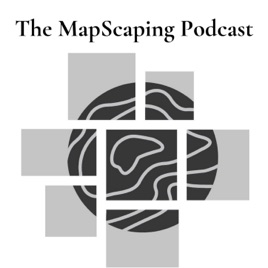
4.8
96
220
The MapScaping Podcast - GIS, Geospatial, Remote Sensing, earth observation and digital geography
MapScaping
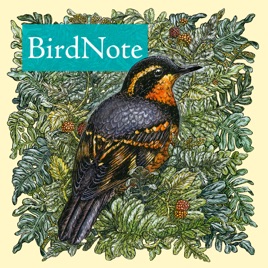
4.8
1065
1956
BirdNote Daily
BirdNote

4.8
577
32
Going Wild with Dr. Rae Wynn-Grant
PBS Nature
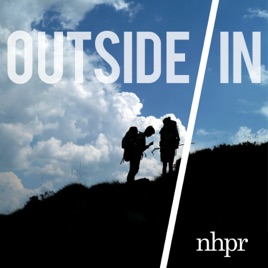
4.7
1286
273
Outside/In
NHPR
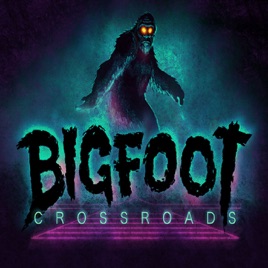
4.7
248
102
Bigfoot Crossroads
Matt Knapp
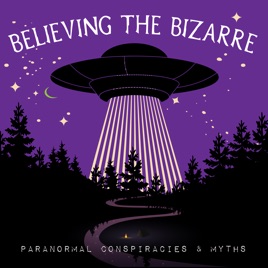
4.8
647
210
Believing the Bizarre: Paranormal Conspiracies & Myths
Tyler and Charlie
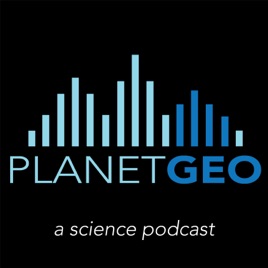
4.9
150
182
PlanetGeo: The Geology Podcast
Chris and Jesse
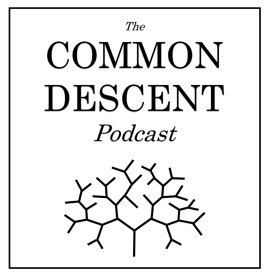
4.8
588
271
The Common Descent Podcast
Common Descent

4.6
534
1025
The Naked Scientists Podcast
The Naked Scientists

4.6
58
200
Storm Front Freaks
Storm Front Freaks | Weather | Chasing | Tornado



